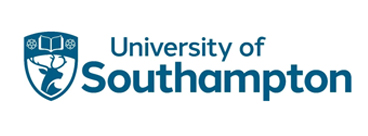20秋新港录取案例分享-南洋理工大学
背景介绍
申请难点
留学规划与提升

Core and Elective Courses
FE8506 Calculus & Linear Algebra
This course covers mathematical tools and concepts for solving problems in financial engineering. It will also help to satisfy some of the prerequisites for subsequent courses in financial mathematics and quantitative analyses of financial data. Topics covered include matrix algebra, Euclidean vector spaces, linear transformations, vector differential calculus, multiple integration, difference and differential equations.
[ back to top ]
FE8507 Stochastic Modelling in Asset Pricing
This course covers the mathematical foundations of multi-period asset pricing. Topics include probability measure spaces, arbitrage pricing, risk-neutral martingale measures, martingale representation, Radon-Nikodym theorem and state-price density, Markov property, Brownian motion, Cox-Ross-Rubinstein binomial model, and semi-continuous models.
[ back to top ]
FE6516 Stochastic Calculus in Finance
This course extends the concepts covered in the Stochastic Modelling in Asset Pricing module to the continuous state-space, continuous time scenario. Ito's integral and stochastic differential equations, Girsanov's theorem, martingale representation will be covered in the context of the Black-Scholes option pricing model. This course also extends the Black-Scholes option pricing model to multi-asset models, change of numeraire and a selection of the following topics: exotic options, stochastic volatility models, interest rate term structure (Vasicek, CIR,HJM).
[ back to top ]
FE8511 Probability & Statistics
This course covers the essential concepts and methods in probability theory and statistical inference, using statistical computer software and real-life data. Topics include conditional probability, Bayes' Theorem, probability distributions, moment generating functions, sampling distributions, estimation methods, common estimators, hypothesis testing, common test statistics, and statistical computing software, mainly S-Pius.
[ back to top ]
FE8512 Linear Financial Models
This course covers both underlying theory and practical techniques of linear statistical models. It also develops essential skills of using computer software to apply regression analysis to real-life financial problems. Topics include simple and multiple linear models, model selection, residual analysis, diagnostics, detection of multi-collinearity, non-standard conditions and common transformations. Principal components and factor analysis are also introduced.
[ back to top ]
FE8513 Financial Time Series Analysis
This course covers the data analytic aspects related to financial time series. Topics include univariate ARIMA modelling, forecasting, seasonality, model identification and diagnostics, and GARCH model and its applications in volatility estimation. Recent advancements in modelling financial time series including non-stationary time series with unit root, vector autoregressive models, and nonlinear processes will also be discussed. This course will emphasize hands-on applications using computer software and real-life financial data.
[ back to top ]
FE8822 Numerical Methods for Financial Instrument Pricing (E)
The first course aim is to give students a basic overview of the numerical methods that are used in finance. The first half of the mini-term will be spent on acquiring background knowledge (numerical methods to solve algebraic equations, numerical differentiation and integration, ordinary differential equations); the other half will be spent on numeric methods for option pricing (solving the Black-Scholes equation numerically and Monte Carlo methods). The second course aim is to show the students some taste of real work of a C++ developer.
[ back to top ]
[ back to top ]
FE8514 Advanced Statistical Modelling (E)
This course builds upon the materials covered in Linear Financial Models and Financial Time Series Analysis. It introduces advanced statistical techniques and illustrates their applications in econometrics and finance. Major topics will include factor analysis, principal component analysis, nonlinear regression analysis, nonparametric estimation, and multiple time series analysis. Computer software will be used to apply these techniques to real-life financial data. Other topics of current interest will also be covered as time permits.
[ back to top ]
FE8510 Optimization in Finance (E)
This course covers mathematical optimization and its applications to finance. The course quickly discusses deterministic optimization and spends time on exploring stochastic and robust optimization. Applications to finance include Asset-Liability Management, Risk Management, and Multi-Period Portfolio Selection with transaction costs.
[ back to top ]
FE8810 Corporate Finance
This course covers the essential elements of the corporate financial management process. Its objective is to inculcate an understanding of the various functions of the financial manager and show how these functions relate to the overall valuation of the firm. Major topics include cost of capital, real options, capital structure determination, dividend policy, corporate risk management, and corporate governance. Case studies are used to familiarize the students with applications of various tools and concepts discussed in the class.
[ back to top ]
FE8811 Asset Pricing Theory
This course develops the consumption-based asset-pricing model and lays the foundations for the understanding of special pricing models such as CAPM, ICAPM, and APT. Topics include expected utility analysis, mean-variance analysis, consumption-based asset pricing models, asset prices in equilibrium, estimation and evaluation of asset pricing models, and the use of stochastic discount factor.
[ back to top ]
FE8812 Bond Portfolio Management
This course covers concepts and techniques for managing fixed income portfolios. Topics include institutional features of bond markets, measurement of risk and return of bond portfolios, and application of these concepts to bond portfolio management. The course will include simulated trading exercises and a portfolio management exercise using real-time data over the period of the course.
[ back to top ]
FE8813 Equity Portfolio Management
While soundly anchored within the bounds of Modern Portfolio Theory and Asset Pricing Theory, this course aims to provide an in-depth but practical understanding of the equity management process, from stock, industry and market evaluation through to portfolio selection techniques and the on-going management functions and evaluation. The use of derivative products in this process is also considered. Project work will include the simulated rnanagement of a US equity fund using real-time market and company data and announcements.
[ back to top ]
FE8814 Derivative Securities
This course covers the use and pricing of derivatives- from the basic features of forwards and options to dynamic trading and hedging strategies. Important quantitative techniques and arguments are developed. The course also emphasises economic intuition and understanding, providing practical insights through class projects.
[ back to top ]
8
FE8815 Interest Rate Derivatives
This course covers (i) the various exchange-traded and over-the-counter interest rate derivative products,(ii) the estimation of parameters of the interest rate models using historical data,(iii) computer programming to compute the values of the derivatives,(iv) hedging interest rate risk using interest rate derivatives, and (v) financial engineered interest rate derivatives.
[ back to top ]
FE8816 Financial Risk Management
This course gives a broad overview of the financial risk management field, from the perspective of both a risk management department and of a trading desk manager, with an emphasis on the role of financial mathematics and modelling in quantifying risk. Specific techniques for measuring and managing the risk of trading and investment positions will be discussed. Students will learn to develop risk sensitivity reports and use them to explain income, design static and dynamic hedges, and measure value-at-risk and stress tests.
[ back to top ]
FE8824 Advanced Risk Management (CMU)
This course has two objectives: to learn the modern or proactive approach to risk management by studying a sequence of structured solutions to financial problems; and to become acquainted with the conceptual building blocks underlying structured solutions. Solutions will involve futures and swaps and you will apply theory to design and implement personal trading strategies.
[ back to top ]
FE8820 Studies in Financial Engineering (CMU)
This course focuses on the use of financial engineering and derivative securities in solving practical business problems. Students will work through business cases and give in-class simulated sales pitches to hypothetical clients. The cases highlight the design, valuation and hedging of structured products. In addition, we will look at real options and at derivative pricing with exotic "underlyings" such as energy, weather, and credit.
[ back to top ]
FE8821 Term Structure: Theory & Practice (CMU)
This is an advanced course on fixed income pricing theory and practice. The course will present popular continuous-time spot rate evolution and term structure models such as the Hull & White and the HeathJarrow-Morton models. These valuation techniques will then be applied to solve practical financial engineering problems relating to structuring and risk management. The highlight of the course is a series of in-class case presentations in which student teams will function as derivative structuring groups. Each team will design and price an exotic structured security and then give a sales pitch to a hypothetical client.
[ back to top ]
FE8817 Monetary Economics (E)
Monetary transmission in an open economy. Dynamic balance of payment adjustment, international capital mobility and systemic consequences. Exchange rate regimes. Relative effectiveness of monetary and fiscal policies. Causal nexus of money, output and prices. Institutional aspects of monetary policy making in major economies.
[ back to top ]
FE8818 Financial Accounting (E)
The objective of this course is to provide a sound understanding of the various items in published financial statements. After the course, participants are expected to be able to analyse and understand financial statements with greater depth.
[ back to top ]
FE8819 Exotic Options & Structured Products (E)
This course covers the applications and the associated risks of financial options that have non- standard features, and the use of financial instruments to restructure an existing financial profile into one having more desirable properties. This is an application oriented course that makes use of case studies to illustrate key concepts. Pre-requisites: basic knowledge of the operations of key financial markets, and derivative products like standard options, swaps, futures and forward contracts.
[ back to top ]
FE8709 Credit Risk- Measurement & Management (E)
The course will cover measurement and management of credit risk as well as the valuation of credit derivatives in addition to the valuation of securities associated with default risk. The course will cover both theoretical models and their applications. The topics include structural valuation models, reducedform valuation models, recovery models, credit rating models, default correlation models, copula-based default correlation models, credit swaps and collateralized debt obligations etc. The course will also involve implementation of the models using Visual Basic or C++.
[ back to top ]
FE8826 Seminars on Special Topics
This course is offered as a series of the ongoing MFE Speaker Series where industry specialists are invited as guest speakers for seminars to share their knowledge, expertise and experience on FE topics. It aims to give students the opportunity to learn from industry experts on the current/prevailing market conditions and how the theoretical directly impacts reality. The first-hand industry experiences of the speakers also offer students a glimpse of what the industry is like and what to expect, so that they are better prepared for the industry.
[ back to top ]
FE8825 Advanced Topic in Financial Engineering Studies (Quantitative Management of Bond Portfolios) (E)
This course provides students with an in-depth understanding of best practice in bond portfolio management techniques, and how they can be used to deliver sustainable returns and manage risk. The course combines interpretation of key market pricing and risk data with the implementation of effective investment strategies to maximize risk-adjusted returns over the long term. It enables students to understand the parameters underlying the creation of an effective portfolio management strategy as well as the day-to-day management of risk and return enhancement opportunities. The course also emphasizes the dynamics and inter-relationships within global bond markets, and how these affect the optimal construction of portfolios, particularly where constraints exist in terms of return targets and mandate restrictions.
[ back to top ]
FE8827 Trading Analytics & Processes (E)
This course covers market structure, transaction costs for trade execution, venues and processes required in institutional trades. In this course, participants will be exposed to the issues relating to the execution of trades in trading venues and the processes that entails through the trade lifecycle. The course mainly takes the perspective of a sell-side and covers the constraints the sell-side faced in managing the transaction costs for the execution of trades. Particularly, participants will learn about the types of transaction costs involved in the execution of trades, ways to quantify and manage these costs.
[ back to top ]
FE8705 Object Oriented Programming I
Introduction to programming concepts, syntax, algorithms, data structure and programs design. Object-Oriented programming (OOP) concepts using C++, and the implementation of software based on OOP libraries. Object-oriented concepts such as classes, inheritance, polymorphism etc. Data representation, abstraction, and encapsulation in OOP. Dynamic data structures. Recursive programming techniques. Divide-and-conquer. Dynamic programming.
[ back to top ]
FE8706 Object Oriented Programming II
Common data structure and algorithmic design and analysis techniques. Searching and sorting. Implementations and applications of data types such as lists, trees and graphs, and algorithm complexity. Selection and application of appropriate data structures to meet the requirements of a given application. If time permits, more advanced concepts such as time and space complexities, problem reductions and NP-hardness will be covered.
[ back to top ]
[ back to top ]
[ back to top ]
FE8828 Programming Web Applications in Finance (E)
This course teaches how to build web-based applications for finance. Students will learn how to create interactive reports and dashboard, interactive rich data visualization in browser. Students will also learn about how internet works, how to create a website with cloud computing infrastructure like Amazon Web Services. Students will also study about the latest technology for internet, the cryptocurrency and payment system, Bitcoin and Blockchain. The course will advance the knowledge and skills towards building real-world application for the internet. Web-based application is easily accessible worldwide only with a browser and there are powerful libraries to display financial data in browser. This skill is of very high practical value to the students because they can turn their knowledge to applications quickly and more ready for a career in finance. Spreadsheet running on desktop is not the working model for the future due to its “offline” nature and lack of tools; the now and future are all about web-based applications.
[ back to top ]
FE8708 Artificial Intelligence Techniques in Finance (E)
Theory and practice of artificial neural networks, fuzzy systems and evolutionary algorithms. Implementation of fuzzy systems. Neural network models. Implementation of supervised and unsupervised learning. Evolutionary search implementation issues (coding, operators, fitness/objective function).Hybridized systems. Applications in finance.
院校解读
留学方案
案例分析
MSc Financial Engineering
The 1-year programme is rigorous and intense. The programme is designed for those with a strong drive and focus to penetrate the top tiers of the finance industry. The curriculum emphasises teamwork and communication in real life corporate settings, seamlessly integrating current financial theory and computational methods with practical knowledge. You will get opportunities to learn from experts from a diversity of disciplines, spanning finance, computing and mathematics. Close interaction with both faculty and industry professionals will enable you to amalgamate real-life experience with academic research to enrich yor understanding of today’s financial world.
Why MSc Financial Engineering
- Opportunity to spend a 7-week term at Carnegie Mellon University, USA
- Expertise from 2 NTU schools - Nanyang Business School (NBS) and School of Physical and Mathematical Sciences (SPMS)
- World class faculty
- Insights from industry professionals
- Strong alumni network

















